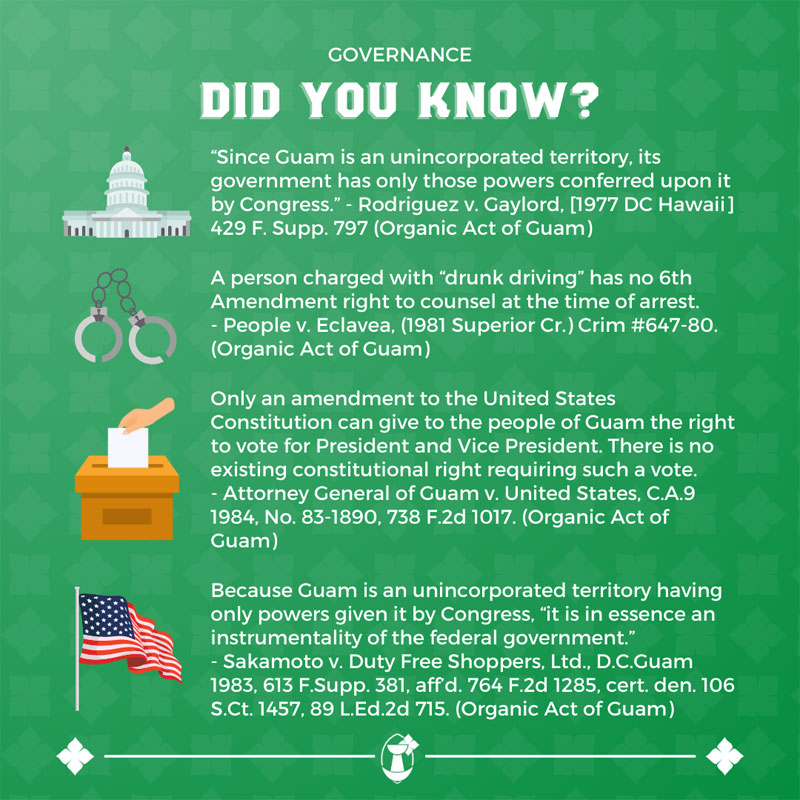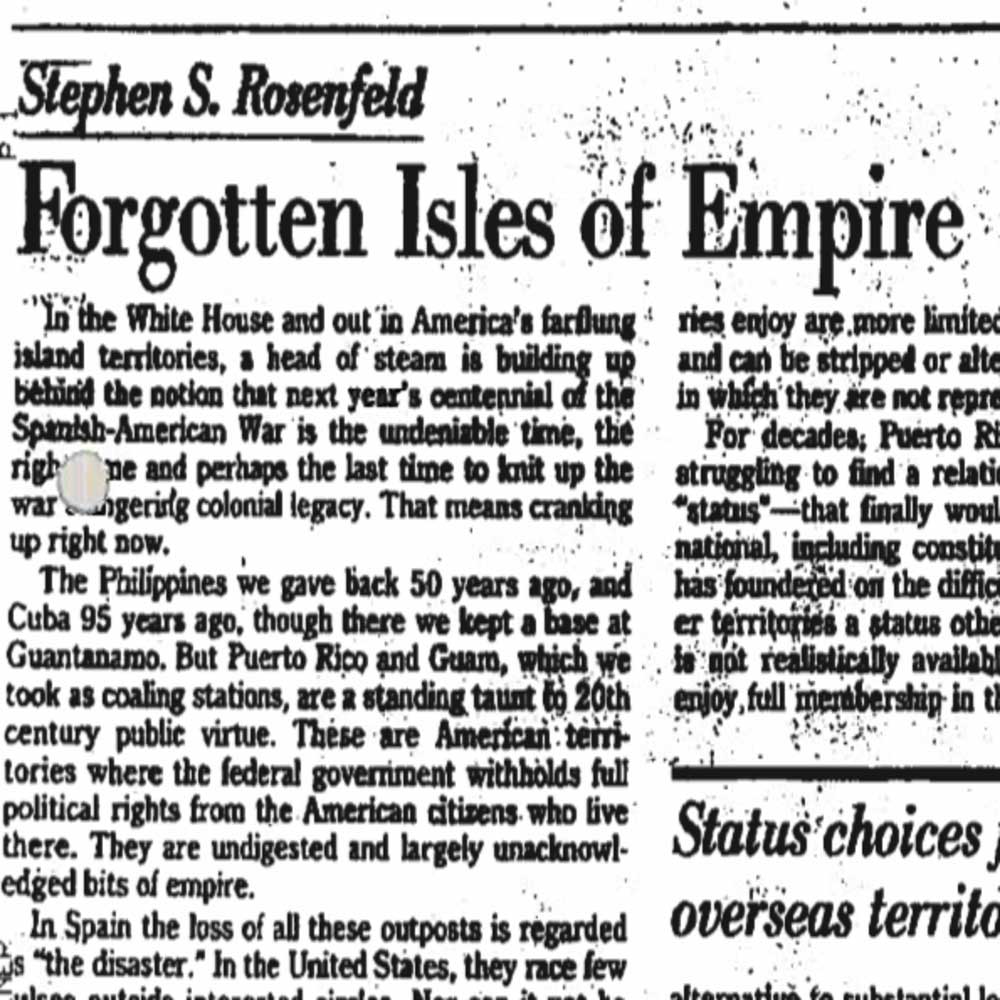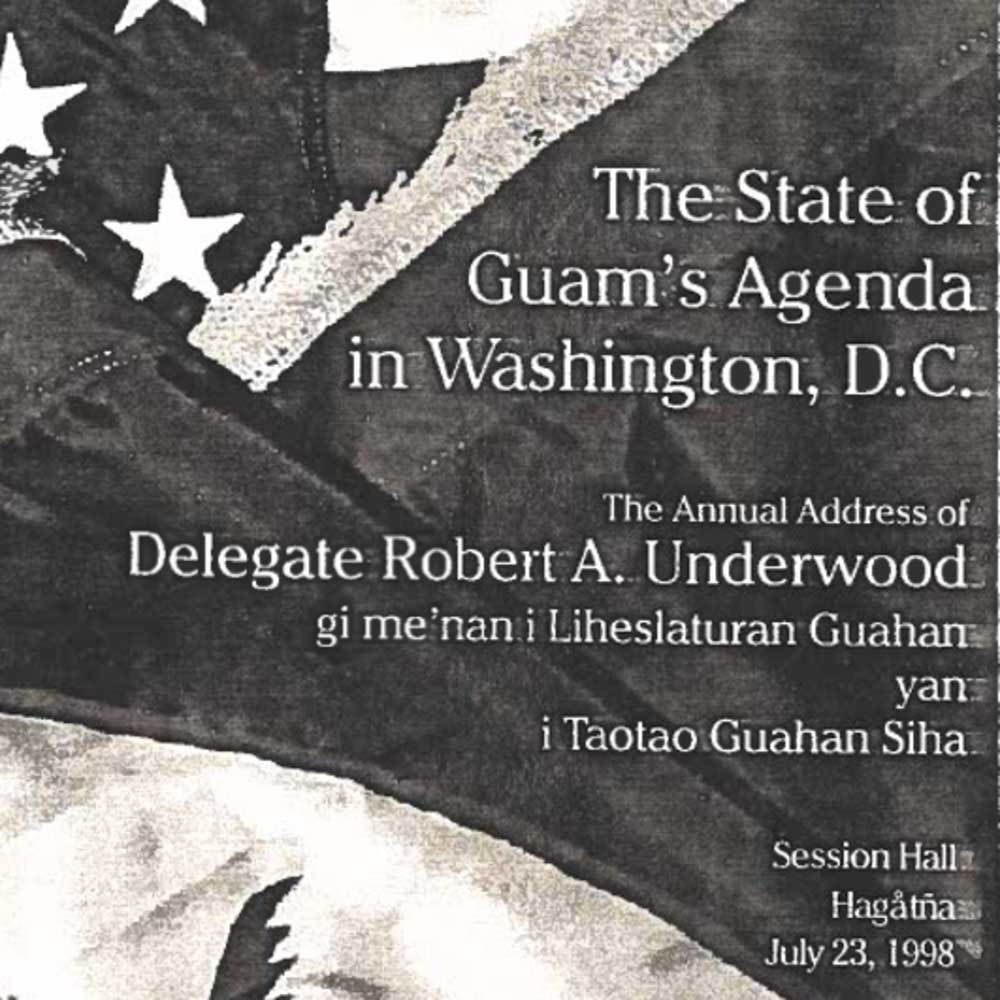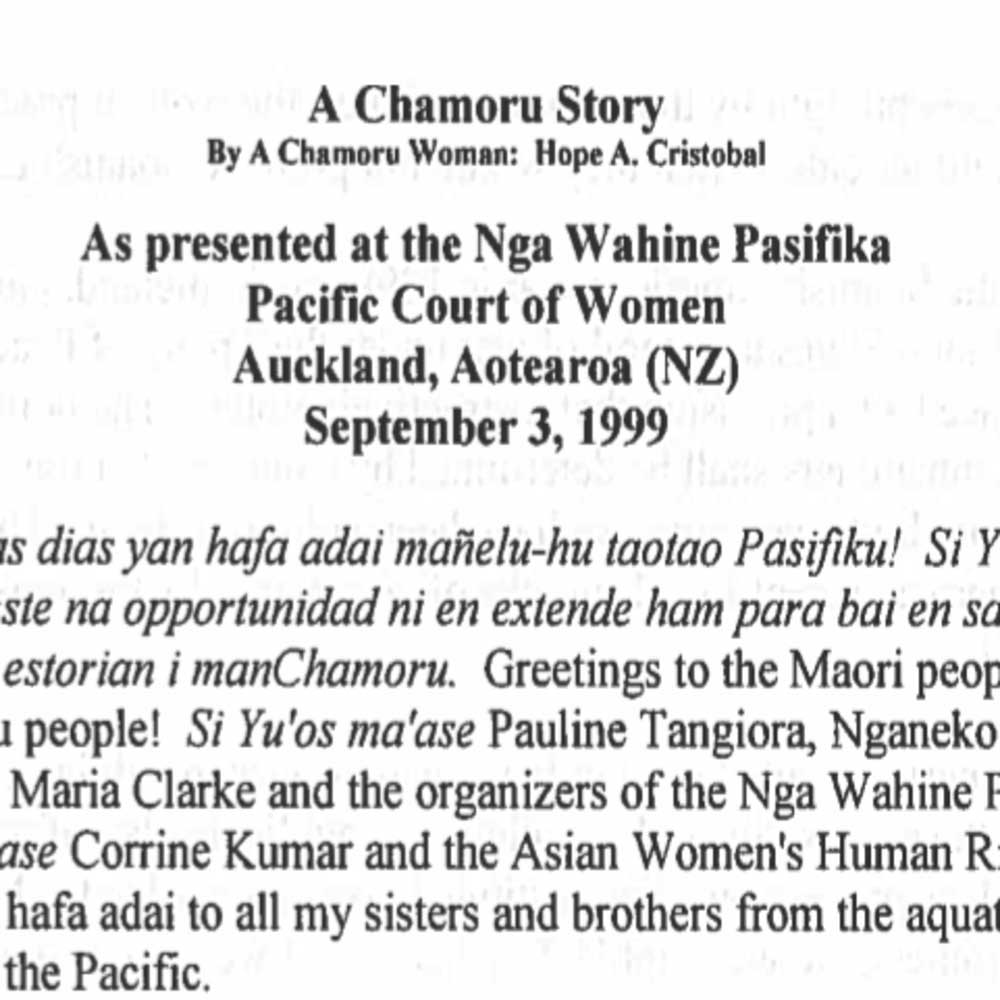Giha Mo'na Governance
Governance is purposeful action by the Government of Guam to guide citizens in a society. This is done by establishing partnerships that allow for a strong public and private sector.
Guam’s “unincorporated” status means that the island is the property of the United States rather than a part of it. According to the U.S. Constitution, Congress can dispose of and make all rules regarding any property belonging to it.
About Governance in Guam
The 1950 Organic Act gave the Government of Guam limited self-government and made all laws in the territory subject to the U.S. Constitution. Article IV, Section III of the U.S. constitution, also known as the territorial clause, states that “Congress shall have the power to dispose of and make all needful rules and regulations respecting the territory or other property belonging to the United States.” Guam’s current status as an unincorporated territory of the United States allows the U.S. to exercise complete sovereignty over the Government of Guam. This limits the government’s ability to make all the rules and regulations necessary for Guam. In addition, the U.S. has also chosen to selectively apply constitutional provisions and citizen rights to the people of Guam.
Did You Know
FURTHER READINGS ON GOVERNANCE IN GUAM




